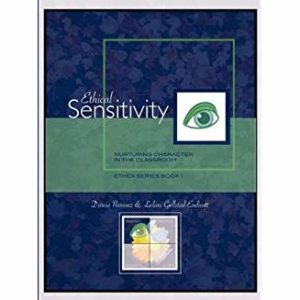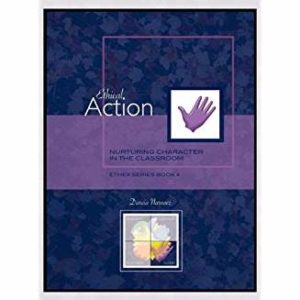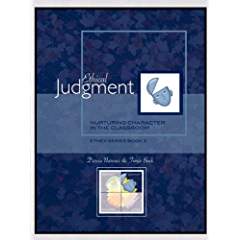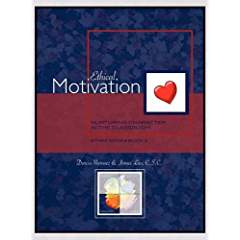RAVES
The RAVES Model for Classroom Moral Character Development
Relationships (relational realms: classroom, wider community, nature)
Apprenticeship (modeling, guidance)
Virtuous Village and Stories
Ethical skills (sensitivity, judgment, focus, action)
Self authorship
WORKSHOP Materials For Educators
Narvaez, D., & Bock, T. (2014). Developing ethical expertise and moral personalities. In L. Nucci & D. Narvaez (Eds.), Handbook of Moral and Character Education (2nd ed.) (pp. 140-158). New York, NY: Routledge.
Bock, T., Narvaez, D., Singh, R., & Tarsha, M. (2019). The nurturing classroom. In T. Tsyrlina-Spady & P. Renn (Eds.), Nurture, Care, Respect, and Trust Transformative Pedagogy Inspired by Janusz Korczak. Sterling, VA: Myers Education Press.
MINNESOTA COMMUNITY VOICES AND CHARACTER EDUCATION Project:
Collaborating with the MN Dept of Education, we had $1 million Character Education Partnership grant funds from the US Department of Education to collaborate with school teams and develop a flexible approach to moral character education (“Community Voices and Character Education“). We aimed to help educators incorporate ethical skill development into regular academic instruction. An earlier version of the guidebooks we developed are downloadable for free from a link here: http://cee.nd.edu/curriculum/ and the later versions are purchasable as noted.
In that project we on the university team compiled the set of skills that comprise the skills toolkit for moral character plus the pedagogical approach that works best (novice-to-expert apprenticeship). We identified skills and subskills and organized them by four levels of expertise development. We also made suggestions for supportive climate elements for each skill as well as student self-monitoring. The teams of educators took this information and adapted it for their own circumstances (selecting which skills to work on and which teachers would implement them). This made it hard to evaluate since every school did things differently and we had troubles with pre-post testing during the evaluation year (I had moved to ND) but we got a publication (Narvaez et al., 2004). Reanalyses were done in Narvaez (2012).
The Integrative Ethical Education model (IEE,) developed after I moved to Notre Dame from the U of MN, put everything into five basic steps
(1) Establish a caring relationship with the learner.
(2) Establish a social climate supportive of ethical character.
(3) Teach the ethical skills (sensitivity, judgment, focus, action) using a novice-to-expert pedagogy.
(4) Foster student self-authorship and self-regulation.
(5) “Restore the village” of community support by forming asset-building communities and coordinated developmental systems.
You can read more about it in publications below.




Narvaez, D., & Endicott, L. (2009). Nurturing character in the classroom, EthEx Series, Book 1: Ethical Sensitivity. Notre Dame, IN: ACE Press.
Narvaez, D. & Bock, T. (2009). Nurturing character in the classroom, EthEx Series, Book 2: Ethical Judgment. Notre Dame, IN: ACE Press.
Narvaez, D. & Lies, J. (2009). Nurturing character in the classroom, EthEx Series, Book 3: Ethical Motivation. Notre Dame, IN: ACE Press.
Narvaez, D. (2009). Nurturing character in the classroom, EthEx Series,Book 4: Ethical Action. Notre Dame, IN: ACE Press.
The Nurturing Character in the Classroom book series# is a set of guidebooks for teachers that provide hundreds of ideas for how to incorporate moral character skill development into regular academic instruction. EthEx refers to the lifelong development of ethical skills toward expertise (ethical expertise) in many domains and situations. The four EthEx books each suggest 7 skills with 3 subskills important for a virtuous life. The books outline how to teach these skills in a middle-school context. But the books are used by K-16 instructors. Each book contains:
- Hundreds of ideas for integrating ethical skill development into standards-drive academic instruction
- Four levels of novice-to-expert instruction
- Guidelines for a classroom climate supporting each skill
- Student self-monitoring items for each skill
“A wonderful resource for nurturing character in the school setting. Narvaez, Bock, Endicott and Lies offer sound, practical, non-prescriptive guidance for teachers that thoughtfully integrates virtue ethics, social and emotional learning, and moral development theory with current research on knowledge acquisition and expertise development.” Marilyn Watson, Authors of Learning to Trust.
Skills Lists
| ETHICAL SENSITIVITY | ETHICAL JUDGMENT |
| Understand emotional expression | Understand ethical problems |
| Take the perspectives of others | Using codes & identifying judgment criteria |
| Connecting to others | Reasoning critically |
| Responding to diversity | Reasoning ethically |
| Controlling social bias | Understand consequences |
| Interpret situations | Reflect on process and outcome |
| Communicate well | Coping and resiliency |
| ETHICAL FOCUS | ETHICAL ACTION |
| Respecting others | Resolving conflicts and problems |
| Cultivate conscience | Assert respectfully |
| Help others | Taking initiative as a leader |
| Being a community member | Planning to implement decisions |
| Finding meaning in life | Cultivate courage |
| Valuing traditions & institutions | Persevering |
| Developing ethical identity & integrity | Working hard |
Earlier Versions of these Materials (free to download)
Narvaez, D., & Endicott, L., with Bock, T., & Mitchell, C. (2001). Nurturing character in the middle school classroom: Ethical Sensitivity. St. Paul: MN Department of Children, Families & Learning. Free download
Narvaez, D. & Bock, T., with Endicott, L., & Mitchell, C. (2001). Nurturing character in the middle school classroom: Ethical Judgment. St. Paul: Minnesota Department of Children, Families and Learning. Free download
Narvaez, D. & Lies, J. with Endicott, L., Bock, T., & Mitchell, C. (2001). Nurturing character in the middle school classroom: Ethical Motivation. St. Paul: Minnesota Department of Children, Families and Learning. Free download
Narvaez, D. with Endicott, L., Bock, T., & Mitchell, C. (2001). Nurturing character in the middle school classroom: Ethical Action. St. Paul: Minnesota Department of Children, Families and Learning. Free download
#These books were initiated during the Minnesota Community Voices and Character Education Project (U.S. Department of Education, Grant # R215V98000, Office of Educational Research and Improvement.
Other PUBLISHED MANUSCRIPTS
Narvaez, D. (2020). Moral education in a time of human ecological devastation. Journal of Moral Education. https://doi.org/10.1080/03057240.2020.1781067
Narvaez, D. (2020). Ecocentrism: Resetting baselines for virtue development. Ethical Theory and Moral Practice, 23, 391–406. https://doi.org/10.1007/s10677-020-10091-2
Kurth, A., Kohn, R., Bae, A., & Narvaez, D. (2020). Nature connection: A 3-week intervention increased ecological attachment, Ecopsychology, 12(2), 1-17. https://doi.org/10.1089/eco.2019.0038
Kurth, A., Narvaez, D., & Tarsha, M. (2020). Meeting basic needs and getting kids on track to fulfill their potential. In T. Tsyrlina-Spady & P. Renn (Eds.), Nurture, care, respect, and trust transformative pedagogy inspired by Janusz Korczak (pp. 115-126). Gorham, ME: Myers Education Press.
Bock, T., Narvaez, D., Singh, R., & Tarsha, M. (2020). The nurturing classroom. In T. Tsyrlina-Spady & P. Renn (Eds.), Nurture, care, respect, and trust transformative pedagogy inspired by Janusz Korczak (pp. 247-260). Gorham, ME: Myers Education Press.
Kurth, A., & Narvaez, D. (2018). The evolved developmental niche and children’s developing morality. In J. Delafield-Butt, A-W. Dunlop & C. Trevarthen (Eds.), The Child’s Curriculum: Working with the natural values of young children (pp. 104-125). Oxford: Oxford University Press.
Narvaez, D. (2018). The developmental niche for peace. In P. Verbeek & B. Peters (Eds.), Peace ethology, behavioral processes and systems of peace (pp. 95-112). Oxford, England: Wiley-Blackwell.
Narvaez, D. (2017). Getting back on track to being human. Interdisciplinary Journal of Partnership Studies, 4(1), March 2, 2017. Online free: DOI: https://doi.org/10.24926/ijps.v4i1.151
Narvaez, D. (2017). Educación ética integrativa: los componentes del conocimiento experto, la comunidad y las virtudes [Integrative Ethical Education: The components of expert knowledge, community and virtue]. In B. Garcia Cabrero & J. B. Barba Casillas (Eds.), Construcción de la educación ciudadana: Miradas contemporáneas y retos futuros [Constructing citizenship education: Contemporary views and future challenges] (pp. 209-222). Universidad Autónoma de Aguascalientes, Mexico.
Narvaez, D. (2016). Kohlberg Memorial Lecture 2015: Revitalizing human virtue by restoring organic morality. Journal of Moral Education, 45(3), 223-238. https://www.tandfonline.com/doi/abs/10.1080/03057240.2016.1167029
Narvaez, D. (2016). Reply: Returning to humanity’s moral heritages. Journal of Moral Education, 45(3), 256-260. http://dx.doi.org.proxy.library.nd.edu/10.1080/03057240.2016.1167030
Narvaez, D., & Bock, T. (2014). Developing ethical expertise and moral personalities. In L. Nucci & D. Narvaez (Eds.), Handbook of Moral and Character Education (2nd ed.) (pp. 140-158). New York, NY: Routledge.
Brooks, J., Bock, T., & Narvaez, D. (2013). Moral motivation, moral judgment and anti-social behavior. Journal of Research in Character Education, 9(2), 149–165.
Narvaez, D. (2012). Moral neuroeducation from early life through the lifespan. Neuroethics, 5(2), 145-157. doi:10.1007/s12152-011-9117-5
Junkins, T., & Narvaez, D. (2012). An educational model for teaching a nonkilling ethic. In. D.J. Christie & J. Pim (Eds.), Nonkilling Psychology (pp. 295-319). Honolulu: Center for Global Non-Killing. Available online: http://www.nonkilling.org/node/458
Narvaez, D. (2010). Building a sustaining classroom climate for purposeful ethical citizenship. In T. Lovat and R. Toomey (Eds.), International Research Handbook of Values Education and Student Wellbeing (pp. 659-674) New York: Springer Publishing Co.
Narvaez, D. (2010). Moral complexity: The fatal attraction of truthiness and the importance of mature moral functioning. Perspectives on Psychological Science, 5(2), 163-181.
Narvaez, D., Kmehlkov, V., Vaydich, J., & Turner, J. (2009). Measuring teacher moral self efficacy.Journal of Research in Character Education, 6(2), 3-16.
Narvaez, D. & Lapsley, D. K. (2008). Teaching moral character: Two alternatives for teacher educators. Teacher Educator, 43(2), 156-172.
Narvaez, D. (2007). How cognitive and neurobiological sciences inform values education for creatures like us. In D. Aspin & J. Chapman (Eds.), Values Education and Lifelong Learning: Philosophy, Policy, Practices (pp. 127-159). Springer Press International.
Power, F. C., Nuzzi, R. J., Narvaez, D., Lapsley, D. K., & Hunt, T. C. (Eds.). (2008). Moral education: A handbook (Vols. 1-2). Westport, CT: Praeger
Nucci, L. P., & Narvaez, D. (Eds.) (2008). Handbook of Moral and Character Education. New York: Routledge.
Narvaez, D. (2008). Human flourishing and moral development: cognitive science and neurobiological perspectives on virtue development. In L. Nucci & D. Narvaez (Eds.), Handbook of Moral and Character Education (pp. 310-327). Mahwah, NJ: Erlbaum.
Lapsley, D. K. & Narvaez, D. (2006). Character Education. In Vol. 4 (A. Renninger & I. Siegel, volume eds.), Handbook of Child Psychology (W. Damon & R. Lerner, Series Eds.) (pp. 248-296). New York: Wiley.
Narvaez, D. (2006). Integrative Ethical Education. In M. Killen & J. Smetana (Eds.), Handbook of Moral Development (pp. 703-733). Mahwah, NJ: Erlbaum.
Ziemba, C., Yep, G., Westerink, D.. Power, A., & Narvaez, D. (2005). Character in Community: A homeroom curriculum. Notre Dame, IN: Notre Dame Center for Ethical Education.
Narvaez, D. (2004). Educación y desarollo moral [Moral education and development]. Republicana, 2,39-50.
Anderson, C., Narvaez, D., Bock, T., Endicott, L., & Lies, J. (2004). Minnesota Community Voices and Character Education: Final Report and Evaluation. Roseville, MN: Minnesota Department of Children, Families and Learning.
Narvaez, D., Bock, T., Endicott, L., & Lies, J. (2004). Minnesota’s Community Voices and Character Education Project. Journal of Research in Character Education, 2, 89-112.
Narvaez, D., Herbst, R., Hagele, S. & Gomberg, A. (2003). Nurturing peaceful character. Journal of Research in Education, 13, 41-50.
Narvaez, D., Bock, T., & Endicott, L. (2003). Who should I become? Citizenship, Goodness, Human Flourishing, and Ethical Expertise. In W. Veugelers & F. K. Oser (Eds.), Teaching in Moral and Democratic Education (pp. 43-63). Bern, Switzerland: Peter Lang Publishers.
Bebeau, M., Rest, J. R. & Narvaez, D. (1999). Beyond the promise: A framework for research in moral education. Educational Researcher, 28 (4), 18-26.
OTHER PAPERS
Narvaez, D. (2010). The emotional foundations of high moral intelligence. In B. Latzko & T. Malti (Eds.). Children’s Moral Emotions and Moral Cognition: Developmental and Educational Perspectives, New Directions for Child and Adolescent Development.
Narvaez, D. (2010). Building a sustaining classroom climate for purposeful ethical citizenship. In T. Lovat and R. Toomey (Eds.), International Research Handbook of Values Education and Student Wellbeing. Springer.
Narvaez, D., Holter, A., Vaydich, J. ( 2010). Moral development. In A.S. Davis (Ed.), Handbook of Pediatric Neuropsychology. Springer.
Holter, A., & Narvaez, D. (2009). Moral education. In E. Anderman & L. Anderman, (Eds.) Psychology of Classroom Learning: An Encyclopedia. Farmington Hills, MI: Thomson Gale.
Holter, A., & Narvaez, D. (2009). Moral development and education. In D. Carr, R. Crosnoe, M.E. Hughes, & A. Pienta (Eds.), Encyclopedia of the Life Course and Human Development (pp. 312-316). Farmington Hills, MI: Cengage Learning.

